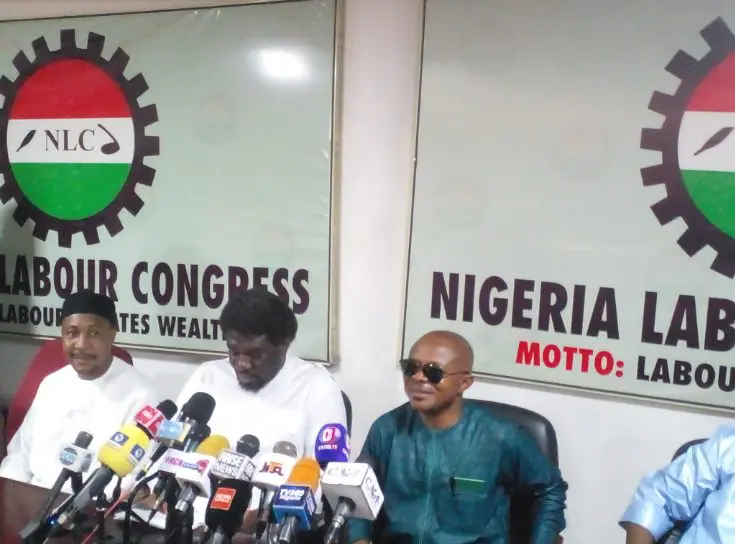The Nigeria Labour Congress (NLC) and the Trade Union Congress (TUC) have declared an indefinite strike starting from midnight on Monday, June 2, 2024, following unsuccessful negotiations with the federal government regarding a new minimum wage and the recent increase in electricity tariffs.
During the latest negotiation, the government and private sector offered a minimum wage of N60,000, a figure that labour unions have rejected. This offer matched the one proposed during the resumed negotiations on Tuesday.
Joe Ajaero and Festus Osifo, Presidents of the NLC and TUC respectively, announced the strike action, urging affiliates, state councils, civil society organizations, market traders, and the general populace to prepare for decisive action.
Osifo emphasized that the government and the organized private sector (OPS) stood by their offer of N60,000, which includes an increment of N3,000 from the previous proposal of N57,000 last week. Meanwhile, labour reduced its demand by N3,000, proposing a new minimum wage of N494,000, down from N497,000.
The 37-member tripartite committee on the new minimum wage, formed in January, has been in prolonged discussions without reaching a consensus.
The NLC and TUC had set a deadline for the end of May for these negotiations to conclude, a deadline which has now passed without resolution.
Speaking at a press conference, Osifo declared: “We shall be commencing an indefinite strike effective from midnight on June 2, 2024, until we have a new minimum wage and until the government is serious. We are united on this because we believe this is the way forward.”
The labour unions criticized the government’s failure to finalize and enact a new National Minimum Wage Act and to reverse the electricity tariff hike to N65/kWh.
They expressed disappointment over the absence of key government officials at the negotiations, viewing it as a sign of disregard for the workers’ demands.
Highlighting the unions’ earlier actions, Osifo recalled the nationwide protest on May 13 and the ultimatum given to the government, both of which have seen no significant response. He stressed that Nigerian workers deserve fair wages that reflect current economic realities and condemned the government’s neglect and attempts to intimidate union leaders.
The unions reaffirmed their commitment to the cause, stating that the indefinite strike would proceed until their demands are met, and called on all stakeholders to join the action.
Meanwhile, the Nigeria Employers’ Consultative Association (NECA) expressed disappointment at the failed negotiations. NECA’s Director-General, Adewale-Smatt Oyerinde, emphasized that the committee’s purpose was to negotiate a new National Minimum Wage, not a living wage or salary adjustments. He warned that the labour unions’ demands could cripple small and medium enterprises and stressed the need to balance workers’ needs with economic realities and business sustainability.
President Bola Tinubu, through Vice President Kashim Shettima, had inaugurated the tripartite committee in January, urging for a speedy resolution. The committee, chaired by former Head of the Civil Service Goni Aji, includes representatives from federal and state governments, the private sector, and organized labour.



